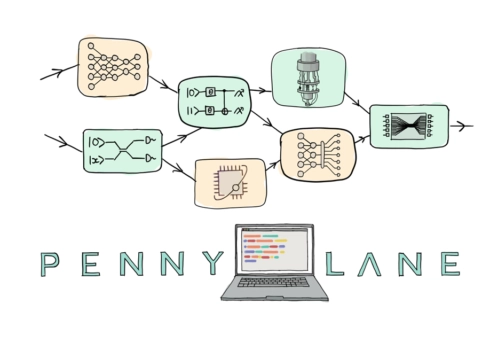
PennyLane is an open-source, cross-platform Python library for differentiable programming of quantum computers. Differentiable programming refers to a programming paradigm that leverages automatic differentiation. PennyLane tries to bridge the gap between quantum computing and machine learning. According to the project’s GitHub page, PennyLane enables users to train quantum computers much like neural networks.
Xanadu, the company behind PennyLane, explained: “We’re entering an exciting time in quantum physics and quantum computation: near-term quantum devices are rapidly becoming a reality, accessible to everyone over the Internet. This, in turn, is driving the development of quantum machine learning and variational quantum circuits.”
RELATED CONTENT: How quantum computing will impact software development
The project’s key features include:
- Machine learning on quantum hardware through PyTorch, TensorFlow, JAX, Keras or NumPy
- Ability to run the same quantum circuit on different quantum backends
- Hardware-friendly automatic differentiation of quantum circuits.
- Built-in tools for quantum machine learning, optimization, and quantum chemistry.
AWS recently announced it would be joining the project’s steering council for variational quantum computing and quantum machine learning. “Our goal is to help build better tools for developers and researchers by bringing together ideas and concepts from machine learning (ML) and quantum computing (QC). Together with our partner Xanadu, we want to continue to evolve PennyLane as an open, community-driven project, and we are inviting contributors from QC, ML, and other fields to join us,” the company wrote in a post.






